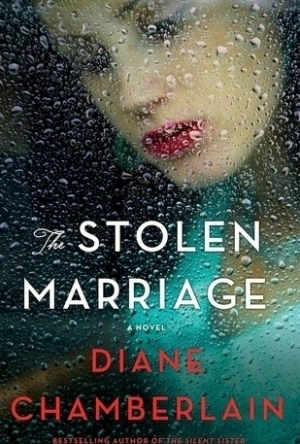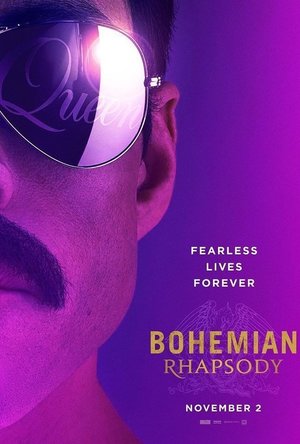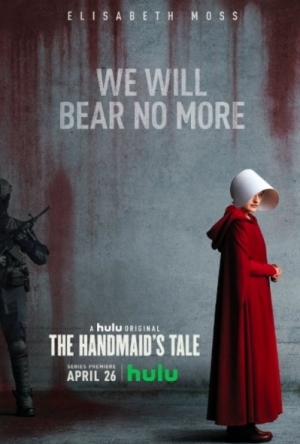Acanthea Grimscythe (300 KP) rated Fungoid in Books
May 16, 2018
Post-apocalyptic stories are, by far, among my favorites to read, perhaps because it's a hypothetical possibility that could still occur in our future. From zombies to biological warfare, many stories offer a new perspective on the end of the world and William Meikle's Fungoid is no different.
Fungoid takes place in Canada and encompasses a wide range of characters and their interactions with one another and other individuals after the apocalypse falls upon the world in the form of a fungal outbreak, only in this case, the fungal epidemic appears to have a mind of its own as it voraciously consumes humanity. Those who manage to survive are left to fend for themselves as they search for a way to overcome their fates when all odds are against them.
Sometimes, a wide range of characters works. Other times, it doesn't. In this case, it does, when says a lot for Meikle's talent as a writer: his characters are well-developed and each possess their own distinct personalities. None of these characters are perfect: they have their own flaws and faults, and, in the true nature of horror, they aren't all good. The portrayal of a villainous character's decline from normality to the ultimate evil is often skipped over in favor of shining the spotlight on the heroes of a story. Meikle's unfortunate villain is spared no detail, and as a reader I was glad to find myself not only bewildered and frustrated by this character, but also found myself feeling sadness and sympathy for them.
The story is extremely fast paced, leaving little room for breathing as you flip through the pages. Given that the book is actually fairly short, it serves as a perfect read for a rainy afternoon inside. There's no shortage of action which is a necessity in a world where many people simply do not have the time to divulge to reading a thick, slower paced book. Meikle's writing is filled with twists and turns, where his characters are given a plausible route of escape or survival, only to find themselves forced to overcome obstacles that threaten to end their very lives.
Fungoid is a definite, must-read for fans of the horror genre, especially if you're looking for a new way of approaching the end of the world.
I would like to thank DarkFuse, William Meikle, and NetGalley for providing me with an advanced reader's copy in exchange for an honest and unbiased review.

Crazy Like Us: The Globalization of the Western Mind
Book
It is well known that US culture is a dominant force and its exportation of everything from movies...
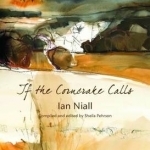
If the Corncrake Calls
Ian Niall, Sheila Pehrson and Barbara Greg (Illustrator)
Book
When the Scottish writer John McNeillie died on the 24th June 2002 aged 85, he left behind a legacy...
Necole (36 KP) rated The Stolen Marriage in Books
Aug 12, 2018
After reading the synopsis of the story in the cover, I was hooked into wanting to read this and the novel did not disappoint. This is not only a multilayered, multifaceted novel of plots and characters but also genre of books. The writing is like watching a movie playing in your head … Chamberlain has a way at pulling you in and making you feel all different emotions throughout the story. Each character is written in a way that you feel like you know them and see their growth and there views and feel each of their stories. If you like historical fiction or mystery or self discovery or even romance, you will love The Stolen Marriage.
The book is set in 1943-1945 with an epilogue that is 1955. It starts out with Tess in Baltimore, which in these times is considered to have northern values and religions with a mix of cultures. Then the story continues into Hickory NC where southern religions, views on colored people, values such as money and family come into play. I am not going to summarize it too much and give too much away nor am I going to describe the synopsis of the book that is given because it is spot on. However, the first chapter draws you in with an accident and a death!!! Then the story unfolds where Tess makes a detrimental decision that changes her path in life drastically. Then its a wild, emotional and beautiful story about a marriage to someone she doesn't know and slowly gets to know, loosing people that are precious to her, loosing herself and finding herself when she becomes a nurse and uses these skills when the polio epidemic hits Hickory, how the town comes together during this time to build a make shift hospital in a very short time, losing and regretting the love of her life, finding out people are not what they make of themselves, secrets that come to light throughout the book, finding out that even though differences are evident you still can learn and overcome a way of thinking, and so much more.
The decisions she makes changes not only her path but others as well. And also the decisions others make change Tess and change the characters lives as well.
This book has race issues, religious issues, moral dilemmas, moral values, personal growth, finding ones true self, etc.
I highly recommend this book!!!!! It was an amazing read, compelling story telling and so many plots wrapped up in one incredible novel!

Healthy Recipes 25000+
Health & Fitness and Lifestyle
App
Want to impress your friends with some mouth watering Healthy cooking? Amaze your partner with a...
BankofMarquis (1832 KP) rated Bohemian Rhapsody (2018) in Movies
Nov 4, 2018
Fortunately, this film rekindled my love for the music of Queen. I gotta admit, I was cranking Queen tunes in the car on the ride home. Unfortunately, the storytelling is weak, so I really did not gain any insight into Freddy, his family, the group, his marriage, his bi-sexuality, his drug use, the times they lived in or the AIDS epidemic of the '80's. All these items were touched upon in the movie, but not delved into, leaving a void in the part of my brain that craves a good, meaningful and touching story with my movie/musicals. It certainly doesn't help this story that I have the wonderful A STAR IS BORN sitting in my recent memory.
But the music, the musical performances and the acting performances of all involved almost make up for this void, leaving a very satisfying experience at the movies.
BOHEMIAN RHAPSODY follows young Farrokh Bulsara as he joins the band SMILE, changes the bands name to QUEEN, changes his name to Freddie Mercury and becomes an International Superstar leading up to the inevitable fall and resurgence at the Live Aid concert in the 1980's.
In the lead, Rami Malik is wonderful. He has the essence of the superstar we know down well. He is a winning, watchable presence on screen and I wouldn't be surprised if he is mentioned when Oscar nominations roll around. Joining him as members of the band are Ben Hardy as Roger Taylor, Joe Mazzello as John Deacon and Gwilym Lee as Brian May. All are effective enough in their roles - and believable in the musical scenes - with Lee standing out just a bit more than the others.
Also along for the ride are Lucy Boyton as Freddy's wife, Mary Austin and Tom Hollander, Mike Myers and Aidan Gillen as music execs aiding and attempting to guide Queen to the top. Only Allen Leech as Paul Prenter is unconvincing on the screen. But, I blame this more to the decisions of the screenwriters and directors for Paul is the "villain" of this piece - and a not-too-subtle villain at that.
But, Director Bryan Singer (X-MEN, THE USUAL SUSPECTS) is forgiven his lapses in content and subtlety as the music scenes are strong - and the film finishes with a 20 minute recreation of Queen at the Live Aid concert that is worth the price of admission all on it's own.
All in all, a good time at the movies. If you like Queen, you'll be entertained by this film.
Letter Grade: A-
8 (out of 10) stars and you can take that to the Bank(ofMarquis)
Jamie (131 KP) rated The Handmaid's Tale - Season 1 in TV
Jul 15, 2017
The story is changed in some pretty big ways in an attempt to modernize the story. The setting has been changed to what seems like the present day in a more integrated United States. The television show added extra plot lines, giving more attention to some of the side characters and giving us their points of view seamlessly, something that would have been difficult and confusing in a written format. I loved seeing more of the side characters and with it, seeing Gilead be fully fleshed out and more terrifying than I ever could have imagined. It was wonderful seeing the story expanded to include the infertility epidemic, the fall of the United States, the protests and gradual rise of the nation of Gilead.
I was hesitant at first when I saw images of a young Commander and Serena Joy but the casting couldn't be more on point. Yvonne Strahovski is a powerhouse that really embodies Serena Joy, making her both a sympathetic and terrifying character. Elizabeth Moss, Samira Wiley, Ann Dowd, Alexis Bledel, and Madeline Brewer all deserve some serious praise for the way that they made all of their characters come alive.
An unfortunate casualty from the book were the changes to June's character, who went from being a disoriented every woman who did not recognize freedom when she had it and tragically lost everything. She wasn't ever meant to be the "hero," not like her mother or Moira who were outspoken feminists. This was an intentional set up in the book to be a cautionary tale of the importance of being vigilant and fighting to preserve one's autonomy. The June in the show on the other hand IS our hero, the fact that there is a season two means that we will have the resistance and the story will become more of your stereotypical dystopia where good will prevail and evil will always lose. It's not necessarily a bad thing, but it's a pretty standard plot that gets recycled over and over.
What the story added where the book was extremely bleak was that tiny glimmer of hope. Hope that Gilead won't last and that the bonds of family and friendship can overcome seemingly insurmountable odds. Be prepared to cry and those with triggers will probably have difficulty digesting some of the content in the show. The story doesn't shy away from difficult topics and the brutality can be startling.
Kayleigh (12 KP) rated Aberrant (Aberrant, #1) in Books
Jan 2, 2019
I thoroughly enjoyed this book. I was thrown headfirst into the action, first meeting Olivia when she is preparing for her wedding day. This piqued my interest, which was held right the way to the end. It was a brilliant dystopian plot, full of turns that I wasn’t expecting. It reminded me a bit of [b:The Hunger Games|2767052|The Hunger Games (The Hunger Games #1)|Suzanne Collins|http://d.gr-assets.com/books/1358275334s/2767052.jpg|2792775] and [b:Brave New World|5129|Brave New World|Aldous Huxley|http://d.gr-assets.com/books/1327865608s/5129.jpg|3204877], in that the government was very much in control – so much so that it could control the most intimate of features in its inhabitants’ lives. There’s a lot of uncertainty throughout the book as to what will happen to Olivia. She’s often not as safe as she would like to be, and feels the weight of expectation, the latter of which is something I think a lot of young adults can relate to.
I think what enhanced the book for me was Olivia and Joshua. Their relationship is written really well; as best friends with a complicated aspect thrown in, there’s the right touch of familiarity versus the unknown. Throughout, they work as a team, the realism of which I liked – it makes a change to the power games that appear in other YA books where sexual tension is at the forefront. Josh and Olivia have been raised in an environment where conception – and therefore sex – doesn’t happen, which made a really refreshing change. Even though they’re 18, the reader is able to see certain realisations bloom in their minds, and that was great to read!
When I interviewed her, Ruth Silver said about what inspired her to write the book:
<blockquote><i>Often, we as a society implement the use of vaccines, especially in preventing disease and now even cervical cancer. Of course the vaccines are all safe and approved by the relevant authorities for the country you live in. I decided to think a little further ahead, and a little darker. What if it was an epidemic where everyone was required to get vaccinated and testing had been shortened or barely done at all?</i></blockquote>
Hearing it put like that made me uneasy, because it brings home how potentially easy it could be for something to strike the world, and for us to find ourselves in a dystopia. I think stories such as this one, where it stems from a simple idea, are the most effective. Mix that in with great characterisation, a little bit of the supernatural, and a plot that twists and turns, and you’re sorted. A great read, thoroughly recommended.
Heather Cranmer (2721 KP) rated The Program (The Program, #1) in Books
Jun 7, 2018
I'd been wanting to read this book for a long time now. The blurb really caught my attention (especially as I've suffered with major depression in the past), so when I got the chance to buy a book, this one was my choice. Luckily, it was a super fantastic read!
I like the title of this book. I like how it's really plain and simple, yet, it works. The title very much suits the book as it's pretty straight-forward about what the book's going to be about.
I like the cover for The Program. All teenagers who enter the program are made to wear yellow lemon colored scrubs. I like how it shows the uniforms.
The world building is superb! Everything is explained fantastically throughout the book. Young makes it easy to believe that one day there will be a "cure" for depression and teen suicide. There's only one bit in the world building towards the end of the book that kind of made me question its reliability. I don't want to give away spoilers though, and this could just be me over thinking things.
The pacing is spot on. From the very first sentence, this book had me hooked. I couldn't wait to see what happened next. To say I devoured this book would be an understatement.
The plot was super interesting. Teens are being taken to The Program once they become depressed. Apparently, teen suicide is contagious and an epidemic, so the only cure is The Program where memories are erased. When Sloane's boyfriend, James, gets taken into The Program, it's not long before Sloane becomes depressed and is taken in as well. Will James and Sloane remember each other or will their memories be totally erased? I thought the plot was very original, and I enjoyed every bit of it. Some of the scenes in The Program reminded me of The Matrix. I believe this book could be read as a standalone since there wasn't a major cliff hanger, but I think it'd be better read as a series.
I loved the characters! I loved how Sloane came across as just a normal teenage girl who had been through a traumatic experience. I felt that her vulnerability made her even more lovable. I also really liked James. I loved how he wanted to protect Sloane from everything. It was very evident how much James and Sloane loved each other. The only character I didn't really care for was Realm. It's not that he wasn't well written because he was. It was just that I never really felt like I could trust Realm. There's just something about him.
The dialogue was fantastic and fit in well with a young adult novel. I loved reading the dialogue between Sloane and James the best. There are innocent mentions of sex although not many. There's also some swearing and some violence, but nothing over the top.
Overall, The Program by Suzanne Young is an original story that has fantastic world building, great characters, and hits close to home. I've already bought the next book in the series.
I'd recommend this book to those aged 16+ who are after a book with an original story line and want a thrilling read.
(I purchased this book in paperback format through Amazon with my own money. I was not required to review this book).
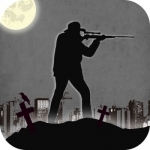
Last Day Survival:Survivor
Games
App
Last Day Survival:Survivor is a free end zombie survival strategy, with only one target for all...

